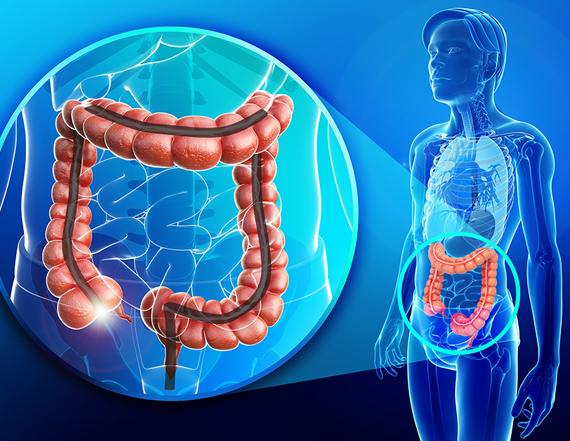About Colorectal Cancer Screening
Endoscopic screening has helped increase the chances of surviving CRC in people with IBD1. ECCO recommend that all people with IBD are screened by colonoscopy to monitor for CRC. The first colonoscopy is recommended 6–8 years after the symptoms of IBD first occurred and either every 1–2 years afterwards for people at high risk of CRC or 3–5 years for people at lower risk of CRC.1,9
For CRC screening, a full colonoscopy is necessary, where the doctor inspects the rectum and entire colon through a flexible lighted tube, and can remove any abnormal growth. The entire colon has to be cleansed before the colonoscopy, for which the patient is usually sedated.

Colon cleansing involves taking cleansing agents, such as polyethylene glycol with or without electrolytes, or sodium picosulphate and magnesium oxide, which cause a laxative effect by drawing water into the colon and stimulating peristalsis to wash out the contents of the colon.10
References:
1: Van Assche G, Dignass A, Bokemeyer B, et al. Second European evidence-based consensus on the diagnosis and management of ulcerative colitis part 3: special situations. J Crohns Colitis 2013; 7: 1–33.
9: Annese V, Daperno M, Rutter MD, et al. European evidence based consensus for endoscopy in inflammatory bowel disease. J Crohns Colitis 2013; 7: 982–1018.
10: Connor A, Tolan D, Hughes S, Carr N, Tomson C. Consensus guidelines for the safe prescription and administration of oral bowel-cleansing agents. Gut 2012; 61: 1525–32.

